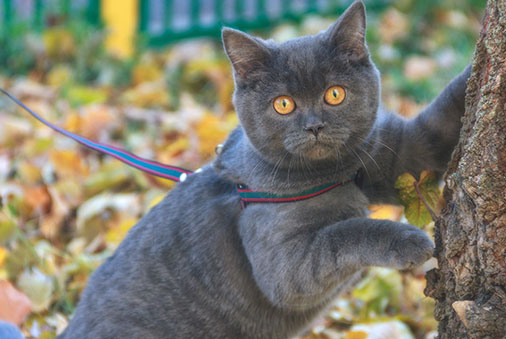7 ways to get your cat to love the litter box
When it comes to housebreaking furry companions, indoor cat parents seem to have a leg up on their dog counterparts. After all, canine kids have to go outside, which often means taking them for walks—yes, even on cold winter nights.
However, what good is a litter box if your cat doesn’t use hers? Before you consider trading meows for woofs, here are some ways to improve your cat’s litter box loyalty.
1. It’s all in the scoop
To help instill a long-lasting attraction between your cat and her litter, keep the box clean. Hey, no one likes using a dirty bathroom. Scoop out the old litter once a day and completely replenish the box with fresh litter once a week.
2. Unmask odors
Avoid using harsh chemicals (bleach, pine, citrus) when cleaning litter boxes. Cats have a sophisticated smeller and don’t like harsh residual scents. Wash litter boxes with hot, soapy water and rinse thoroughly.
Also, just because we often think all felines are female, doesn’t mean they like strong perfumes. Appropriately scented litter that doesn’t disguise your cat’s natural odor can be appealing to cats.
3. Consistency counts
Cats aren’t interior decorators who become bored with their lavatories. Stick with a litter you know your cat likes, that smells and feels good to them. Switching brands frequently can make your feline take her business elsewhere.
4. Mix it up
If you want to try a new, more naturally absorbent, eco-friendly litter, sprinkle some of your cat’s old litter on top so she recognizes the smell and is drawn to it.
5. Litter compound
Every cat should have its own litter box. Multi-cat homes require one box per cat, plus an extra one, which means two cats need three litter boxes. Also, litter boxes shouldn’t form an assembly line; place them in different areas of your home and on separate floors if you have two stories.
6. Room of one’s own
Your feline needs a private place to relieve herself, just like you. Keep litter boxes in quiet rooms away from high-traffic areas.
7. No hide ‘n’ seek
Privacy is paramount, but don’t hide your cat’s litter box in a place that’s so remote even she can’t find it. Pick a location where she can at least see who’s approaching. This is especially important in multi-cat homes where assertive felines can become litter box interlopers.
Also, if you have a multi-cat home, avoid hooded litter boxes; although they cover up unpleasant odors, they make it difficult for cats to keep an eye on their siblings.
Tracking Urinary Issues
Some furry companions frequently have urinary tract problems. Contact your veterinarian if your cat exhibits any of these red flags for Feline Lower Urinary Tract Disease:
- Strains to urinate
- Urinates more frequently
- Voiding in unusual places, not litter box
- Blood in urine
- Vomiting
- Lack of appetite
- Lethargic
- Male cat licks genitalia, cries when you lift him
- Low urine output may indicate bladder inflammation
- Straining with no urine output can mean urinary tract obstruction from crystallization







